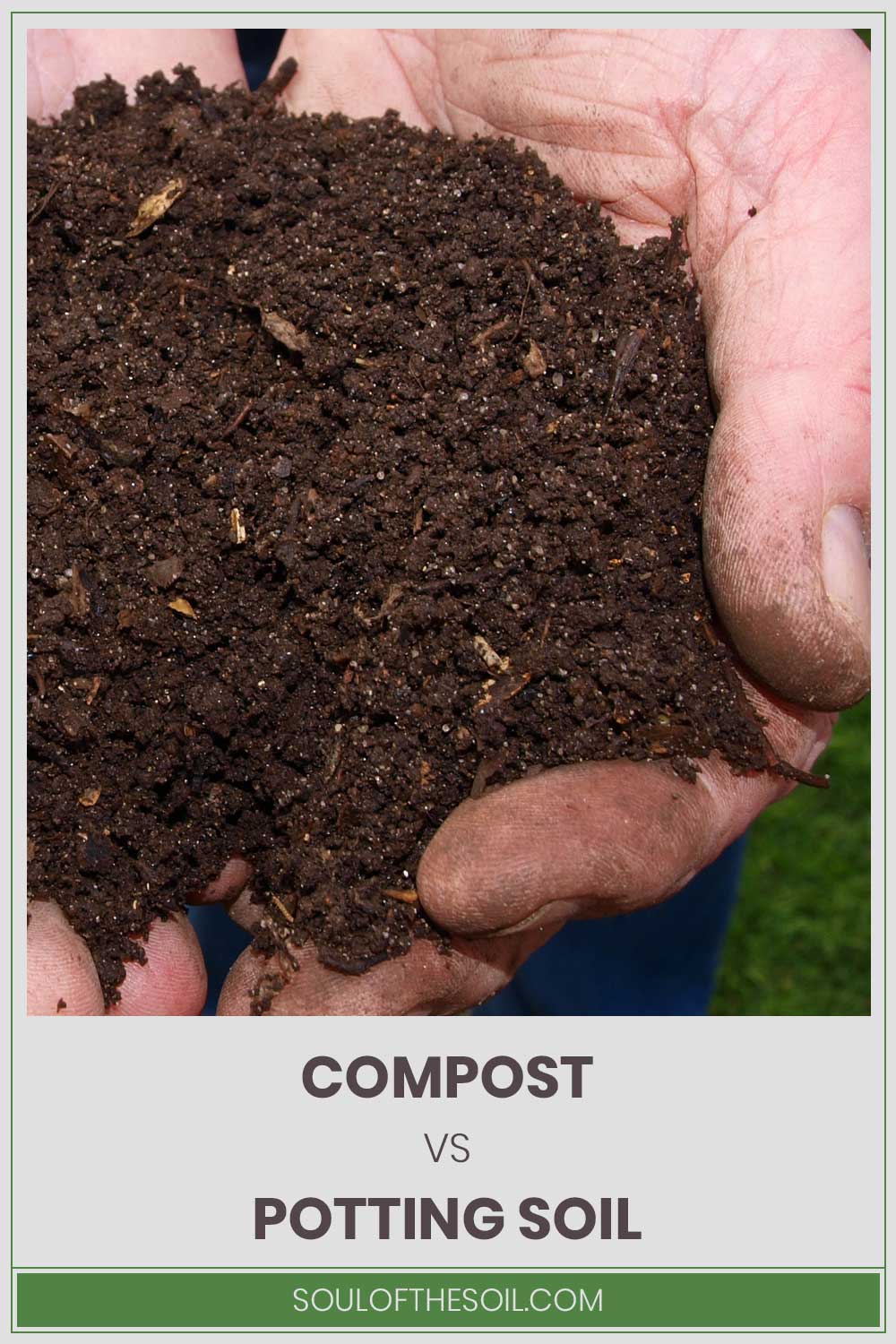Compost vs. Potting Soil
We may earn commissions for purchases made through links on our site. Learn more on our about us page.
The reality of soil is that the nutrients get used up after a while, the nitrogen levels dwindle, and the land becomes bare. So one innovation that humanity has come up with is the ability to create these soils without needing to wait for mother nature to do it for us.
Compost soils are made up of organic matter which has decomposed by microorganisms, and the potting soils will provide similar nutrients but without the pathogens, fungi, or insect matter left within the dirt itself.
As a result, potting soils will be considered ‘sterile’ and are better used for inside vegetation, while the compost will be best served outside.

What are the Differences?
The primary differences will be in the composition of the soils, where the products should be used, and how they are produced.
For example, compost is created by mixing dirt, natural materials, and other organic matter into a heap and allowing natural processes to inject nitrogen into the soils by way of microorganisms and insects.
It would be best to use potting soils when it comes to growing foods outside of farmers’ rows, plants, and other indoor plants. This will avoid any unplanned insects living in the home and keep the in-home environment from being exposed to an unwanted bacterium.
In addition, composts are made by these small creatures and creepy crawlies, which leave eggs and deceased bodies inside the dirt, making this material best for outdoor purposes.
What are the Similarities?
Both of these types of soil solutions provide a rejuvenating amount of nutrients and nitrogen, and each will help plant life grow strong and healthier.
Another significant similarity would be that these soils will be created to help a gardener, farmer, or other landscape caretakers bolster plant health in their area or home.
Though it is not recommended to use potting soil for lawns unless using a product like Scotts turf builder, they both will provide the grass with a bunch of needed nutrients and grow thicker and stronger than before.
Pros and Cons: Compost vs. Potting Soil
The con for the compost will be the added natural organic matter, for instance, insect eggs or fungal growth, which can be an issue inside the home, making compost unusable in indoor situations.
The overwhelming pro will be the ability to recycle organic compounds around the home, then when you need a boost in the garden, along the flower beds, or anywhere plants could use a helping hand.
The pro for potting soil would be the sterile nature from which the packaging comes, meaning there is none of the organic materials in the dirt, which makes these soils perfect for the plants growing in and around the home.
The con will be the expenses when purchasing these bundles; compost is free to create and make, and potting soil is purchased.
Which One is More Common?
This is going to be a close one, but for the sake of creating an answer, potting soil is more readily available to purchase than people are willing to create compost. So then you can look at it from this perspective, what is filtered compost?
Meaning if the insect eggs and other organic materials are screened and filtered out, what is left is pure soil which then can be turned into potting soil.
So, therefore, we have to say that compost is more common because more potting soils start out as compost. Not to mention, the earth creates its own compost, just a tidbit.
Which One is More Efficient?
There is an unwritten rule when it comes to using compost, you should not grow plants in compost alone. If you do, the rich soils will be nitrogen-rich and somewhat toxic for plants.
On the other hand, the compost will rejuvenate bare earth or any other struggling soils as an additive. Potting soils are usable right out of the package, and most gardeners will mix in natural earth with the packaged soils.
This simple fact, meaning the in-organic potting mix, you can plant seeds and bulbs directly into the potting soil; it would be enough to make these forms of dirt the more efficient route to having successful growth.
Final Thoughts on Compost vs Potting Soil
The last part of the puzzle is going to be the plants you intend to grow, which will help guide a novice gardener to which product to use.
If you are working outside, especially when it comes to lawns and landscaping, compost is a fantastic solution and is really easy to use in these situations.
Professionals will be filled with tricks, even mixing potting soils and composts to create super dirt of sorts. Look at the ball diamonds, the professional ballparks, and municipal areas; the places that look outstanding, think compost and potting soils.



Leave a Reply
You must be logged in to post a comment.